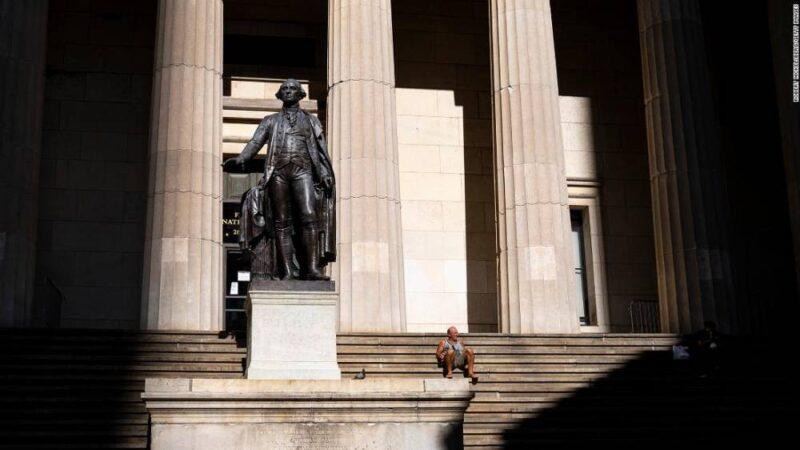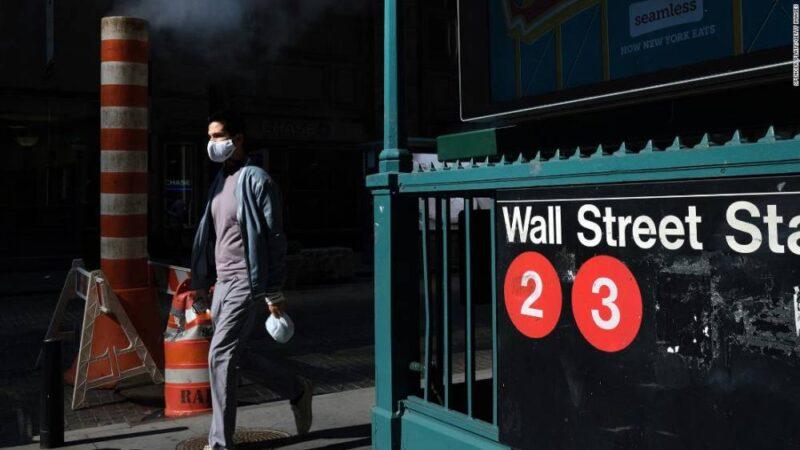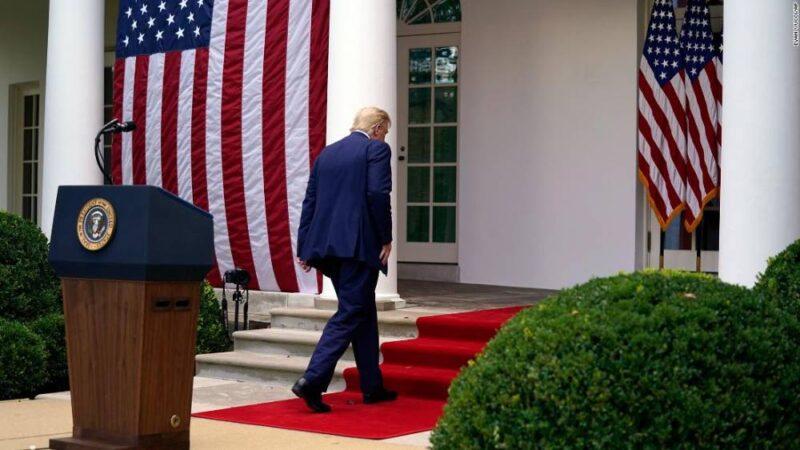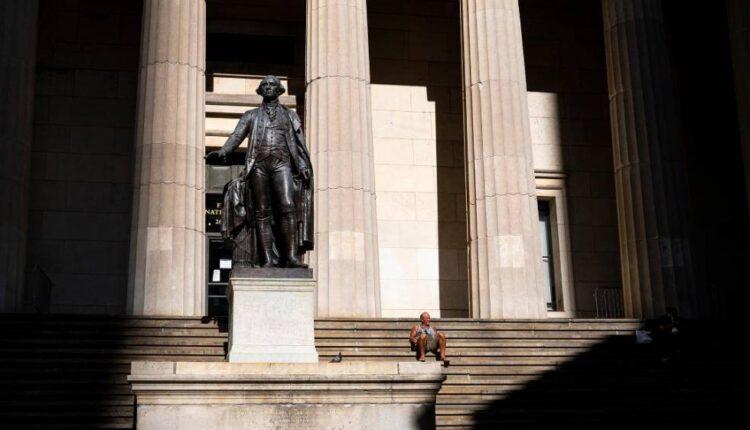New York (CNN Business)The United States is mired in the worst pandemic in a century and the economy is struggling to dig out of the deepest hole on record. And yet, Wall Street’s worry list is topped by the unparalleled test facing American democracy.
A contested result in the race for the White House is the most popular concern among portfolio managers surveyed by RBC Capital Markets.

Wall Street is 'doomsday prepping' for the election. It might not be necessaryMore than three-quarters of investors, 76%, cited a contested election as a worry — exceeding those concerned about a second wave of layoffs (66%), a slower economic recovery (64%) and a second wave of coronavirus infections (63%).
The findings underscore the degree to which the election, and President Donald Trump’s efforts to cast doubt on mail-in voting, are influencing financial markets.”Our survey suggests that concerns about a contested election have contributed to recent equity market weakness,” RBC Capital analysts wrote in the report Monday.Read MoreThe S&P 500 retreated 4% in September, marking the benchmark index’s worst month since the height of the pandemic in March.
‘Chilling comments’ in debate
Notably, the survey of dozens of institutional investors took place almost exclusively prior to Tuesday’s presidential debate, an event that only amplified Wall Street concerns about a contested election. During the debate, Trump falsely claimed the election is “rigged” and baselessly argued that mail-in voting would cause “fraud like you’ve never seen.””The chilling comments by Trump on a ‘rigged’ election reinforced our belief that he will go all the way to the Supreme Court if it looks like he narrowly lost,” Greg Valliere, chief US policy strategist at AGF Investments, wrote in a note to clients Wednesday.Valliere warned that investors must brace for prolonged uncertainty that could last weeks. “Could a protracted stalemate lead to civil unrest? Trump didn’t make any effort last night to calm his far-right supporters,” he wrote the day after the debate.
Politics keeping investors awake
No one can say for sure how much a contested election would impact financial markets. But it’s easy to see how instability in the world’s largest economy would drive significant market volatility, causing investors to retreat by purchasing gold and Treasuries while dumping high-flying stocks. The 2000 election wasn’t settled until the Supreme Court decision Bush v. Gore on December 12, five weeks after the election. During that time the S&P 500 dropped 5% and the small-cap Russell 2000 tumbled 7%, according to DataTrek Research. Treasury yields dipped as demand rose and gold outperformed. Meanwhile, 83% percent of the portfolio managers surveyed by RBC indicated that a contested election would be a “negative event” for the stock market. And just 14% say the results of the 2020 election will be known on the evening of November 3.Asked what is keeping them up at night (something making them either nervous or excited), RBC said the most popular choice was the 2020 election, beating out elevated market valuations and the pandemic.

Earnings expected to plunge again but there are hopeful signs”We see a material risk of a contested election or a delayed result. Election day could turn into weeks or months,” strategists at BlackRock wrote in a report this week.
Relief rally if election gets decided early?
Of course, 2020 election jitters are nothing new, especially because the pandemic is causing a surge of mail-in voting. In early July, Goldman Sachs and others on Wall Street highlighted extremely elevated volatility metrics during the three-month period around the election. That means investors were anticipating market turbulence months ago by taking out insurance. Some on Wall Street think the risk of election chaos may already be priced in and investors aren’t adequately prepared for a calmer outcome.

America's CEOs say Trump failed on coronavirus — and they're backing BidenCharlie McElligott, a cross-asset macro strategist at Nomura Securities, wrote in a note to clients on Tuesday that an earlier-than-expected conclusion to the election or a “large, clear-cut Biden electoral win” would cause all the “doomsday prepping” by investors to get rapidly unwound. And that in turn could “catapult markets higher,” McElligott said.In fact, Nomura’s analysis shows the risk of a “‘crash-UP’ as rather surprisingly more pronounced than ‘crash-DOWN.'”Likewise, RBC strategists said that the banks’ survey suggests a “short-term relief rally is possible if a clear winner in the presidential race is apparent on election night.”Apparent is the key word there. Even if no one concedes, results from battleground states like North Carolina and Arizona that start counting their mail-in ballots before Election Day could telegraph the winner to markets.
Wall Street thinks Biden will win
Sophisticated investors think that Joe Biden will eventually emerge as the winner, although they may be growing slightly less confident in that. Fifty-seven percent of portfolio managers polled by RBC think Biden will win, down from 63% in the June survey. Most investors (53%) think Trump’s reelection would be either bullish or very bullish for stocks. That’s because Trump is laser-focused on the stock market and his reelection would mean four more years of low taxes and light regulation.
Biden, on the other hand, has vowed to raise taxes on corporations and wealthy individuals. The former vice president has also laid out ambitions plans to spend heavily on infrastructure and clean energy. Concerns about a Biden administration appear to be fading. Just 41% of portfolio managers polled by RBC think Biden would be bearish or very bearish for stocks, down from 60% in June. Another 46% say Biden would be neutral for the market.
Source: edition.cnn.com

